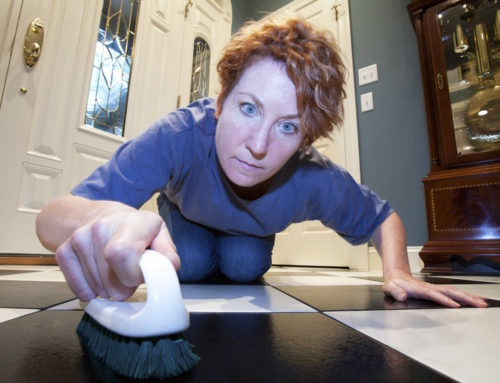Given that OCD is an anxiety disorder and fueled by doubt and fear, we must learn to reduce our anxieties that trigger our need to perform compulsive rituals. Because so much of OCD’s anxiety arises from the intrusive thoughts we have, taking the anxiety-causing power out of intrusive thoughts is a big step in preventing escalation.
One way to defuse the intense anxiety that drives compulsive behaviors is to re-assign value to intrusive thoughts. We can’t stop intrusive thoughts. All people have random, strange or even disturbing thoughts. The difference is that people who live with OCD over-interpret their intrusive and distressing thoughts as being significant and valid. They give these thoughts weight and allow them to fuel worry. Worry pummels the person with OCD with ever-escalating thoughts of “What if?” People with OCD are threatened by their intrusive thoughts as they would a real, external threat. Performing compulsive rituals reduces intolerable anxiety, but not for long.
Another way to bring OCD into line is to identify what situations tend to be the most anxiety-inducing and to defuse them. These are the steps for that process:
- Identify the situations that provoke your anxiety (touching something you think is germy, leaving the house, checking locks, etc.)
- Write down everything that takes over your thoughts in each of the above situations. What are your immediate thoughts? What are your impulses?
- List everything you do to reduce anxiety and reduce the feeling that something horrible will happen if you don’t perform whatever ritual you have to reduce stress (like checking the burners over and over or washing your hands multiple times)
- In each list, rate from 1 to 10 how anxious or upset you believe you’d be if you attempted to resist each compulsion.
- Pick one situation from your lists that you think you could resist with only mild anxiety. The next time you’re in that situation, pay close attention to how anxious you feel when you resist performing any ritualizing behavior. Anxiety is always highest at the beginning of resistant and lowers over even short periods.
- Keep repeating this pattern. When you experience the anxiety causing situation, resist the urge to perform any ritualizing behaviors.
If you or a loved one is regularly experiencing symptoms similar to those listed in this post, seek help from your local Spokane healthcare professional. Reach out to Damaris through her contact page or calling 509-342-6592.






